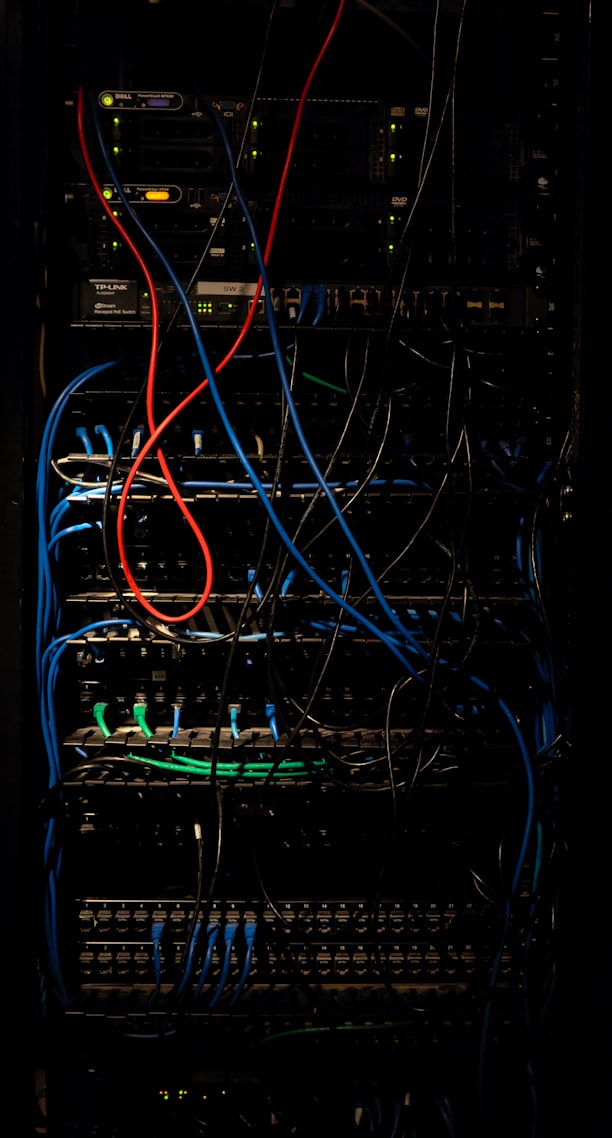It is undeniable that having a reliable and strong internet connection is crucial for nearly all facets of our everyday lives. Therefore, selecting the most suitable internet type for your house is vital whether you use it for business, education, entertainment, or staying in touch with your loved ones. However, making a choice that is best for your needs can be overwhelming with so many options available.
In this article, we’ll showcase a detailed breakdown of the various internet connections that are presently accessible in the market and guide you to choose the one that suits you most effectively. You will also discover the critical aspects to take into account while deciding on the best internet connection for you. Let’s get started!

Different Types of Internet
There are several sorts of internet connections accessible today, each having its perks and cons. Understanding the different types can help you pick the ideal internet connection that meets your needs and budget. Here are some common internet types to consider:
Cable
Cable internet uses the same coaxial lines as cable TV to provide high-speed internet access. It can distribute download speeds as high as 1 Gbps in some places and is faster than DSL. However, the number of users utilizing the network at any particular time might also affect the connection’s speed and quality.
DSL (Digital Subscriber Line)
DSL is a broadband internet connection that uses traditional telephone lines to transmit data. It is among the most extensively used and reasonably priced solutions for residential internet. However, the distance between your location and the provider’s base can affect the connection’s speed and quality. The connection will be slower the farther you are.
Fiber Optic
The quickest and most dependable internet connection currently offered is fiber optic. It uses fiber optic connections to transport data at speeds of up to 1 Gbps or more, subject to the provider and plan. In comparison to cable or DSL, fiber optic internet is much less prone to interruptions and interference because the lines are usually buried underground.
Satellite
Satellite internet employs satellites orbiting the earth to transfer data. It can give remote areas internet access where other types of internet connections are not available since it is almost always available. Yet, because of its high latency, satellite internet might not be the best option for online activities like gaming and video streaming for extended periods.
Fixed Wireless
Between an antenna on your roof and the internet service provider’s tower, fixed wireless internet uses radio waves to transport data. For homes in remote locations where other types of internet connections are unavailable, it’s a good alternative. However, the range between the antenna and the tower can influence the dependability and speed of the connection.

5 Factors to Consider When Choosing the Right Internet Type for Your Home
Choosing the ideal type of internet connection at home is vital for ensuring fast, dependable, and cost-effective connectivity at home. Various factors need to be evaluated to make an informed decision that meets your necessities. Here are a few crucial aspects to evaluate when choosing an internet connection:
Availability
When selecting an internet connection, start by checking which types are available in your area. Not all connections are offered everywhere, so contact local providers to see what options are open to you. This can save you time and effort by ruling out choices that aren’t feasible and guide you in finding the ideal internet connection for your needs.
Cost
Another crucial factor is the cost of the internet connection. The price might differ depending on the provider and package you select, and some internet connection types may be more costly than others. To get the most for your money, it’s crucial to compare pricing and programs from several providers.
Speed
One of the most important elements to consider is the internet speed you demand. Your need for speed is determined by the online activities you intend to engage in. DSL or satellite internet may be adequate if all you need is the basic standard rate of the internet for email and web browsing. On the other hand, fiber internet can be your great option if you need quick internet for online gaming, teleconferencing, or streaming high-definition video.
Data Limits
Data limitations are the monthly data allowances that you can utilize before your internet connection is restricted or you are assessed additional fees. While some internet providers offer limitless data, others impose data caps.
Data caps for DSL and cable internet plans are typical and can range from 100 GB to 1 TB monthly. On the other hand, fiber optic internet services typically include unlimited data. It’s crucial to select an internet plan with unlimited data if you’re a frequent internet user who streams videos, downloads big files, or plays online games to prevent going over your data allotment.
Customer Service
It’s necessary to assess the quality of customer care and assistance offered by the internet provider. Opt for a provider that offers reliable and responsive customer service to assist you in case of any issues with your internet connection. This ensures a hassle-free and satisfactory internet experience.

Final Thoughts
Choosing the ideal internet type for your home relies on several aspects, including availability, cost, speed, data limits, and customer service. DSL, cable, fiber optic, satellite, and fixed wireless are all options to consider, depending on your location and internet needs. To guarantee a reliable and cost-effective internet connection at home, it’s crucial to compare plans and providers carefully. This will enable you to find the ideal benefit for your money while securing a strong and dependable internet connection.









